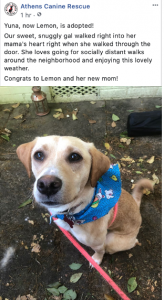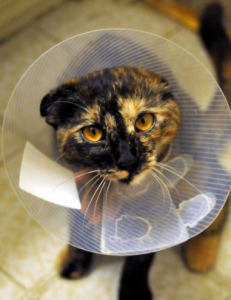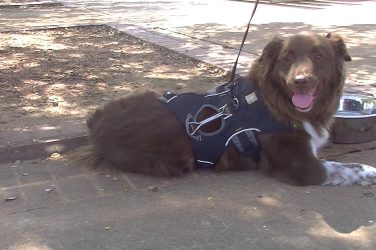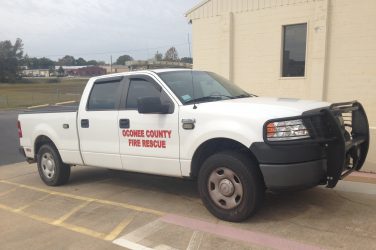
Among the many changes to our daily lives the COVID-19 pandemic has introduced, animals in animal shelters and rescues across the region have also been affected.
Athens Canine Rescue uses a network of foster homes instead of a physical shelter to save animals. One drawback for the nonprofit organization is that it can only take in a certain amount of animals that have guaranteed foster homes available.
The rescue has about 20 foster homes and usually receives about two or three applications from potential fosters within a typical month. This number has grown to 15 to 25 applications within the last month, due to the number of people home from work willing to foster and adopt animals in need.
“I don’t see it [the number of applicants] staying steady,” said Bly Crane, president of Athens Canine Rescue. “I think a lot of people are excited because it gives them a fun project during the time that they have to stay at home. I think that once life, fingers crossed, goes back to normal, their schedule is just going to go right back to what it used to be, and they won’t have time to continue having a new dog and everything that that entails.”
Athens Canine Rescue has a slight advantage during these times because they already have adequate communication venues of emails, text messages and Facebook Groups. However, the rescue has had to cancel monthly adoption events, which has impacted the chances of animals landing foster homes.
“While we do want to take every foster home that we possibly can to rescue as many dogs as we possibly can, we also have a financial side of it because every dog costs us money,” said Crane. “We have to balance how many dogs we can take versus the amount of money that we have at any given time.”
While costs are increasing and income remains stagnant, it is important for those with the means during this time to donate and use social media to promote and support any local rescue, shelter or humane society.
(Source: https://petpedia.co/animal-shelter-statistics; Infographic/Jessica Marie Clayton)
Similar to Athens Canine Rescue, the Madison Oglethorpe Animal Shelter is adapting their procedures to continue getting animals placed in homes. It services both Madison and Oglethorpe counties and adopts 70 to 120 animals per typical month, according to the director. To reduce the chance of COVID-19 transmission, the shelter has decided not to allow anyone inside the building and will continue accepting animal intakes and adoptions on an appointment-only basis.
“We still take in more animals than we can even house because if we house 100 to 150 [animals], we end up actually taking in some months up to 350 or so [animals],” said Director Shaina Knight.
One of the major repercussions that will affect the region will present itself in late summer and early fall when the stray animal population swells from the lack of spayed or neutered animals. The Madison Oglethorpe Animal Shelter is the only shelter in the surrounding area that is actively doing low-cost spays and neuters, according to Knight.

“Surgical masks and gloves are very hard to come by now, and they are costing up to quadruple what they were coming by before,” said Knight. “One of the things that we really took into consideration was human health care. If we’re buying up surgical gloves and masks because we do anywhere from 15 to 30 surgeries per day depending on the day, well that’s 30 sets of PPE that could have gone to a healthcare professional.”
Knight also said keeping animals inside, walking them on leashes, and only leaving them out in fenced areas are the best steps for owners who cannot get their pets spayed or neutered during this time. The Madison Oglethorpe Animal Shelter performed 800 free spays and neuters last year with its Spay It Forward program, but are unable to this year because of extenuating circumstances.
According to both Knight and Crane, shelters and rescues in this region have seen a decrease in donations received due to the number of people not working, which affects their bottom lines and ultimately determines how many animals can be saved. Financial support and social media promotion are the most important contributions to keep animal shelters, rescues, and humane societies afloat both and after the COVID-19 pandemic.
Jessica Marie Clayton is a student in the Grady College of Journalism and Mass Communication at the University of Georgia.









Show Comments (0)